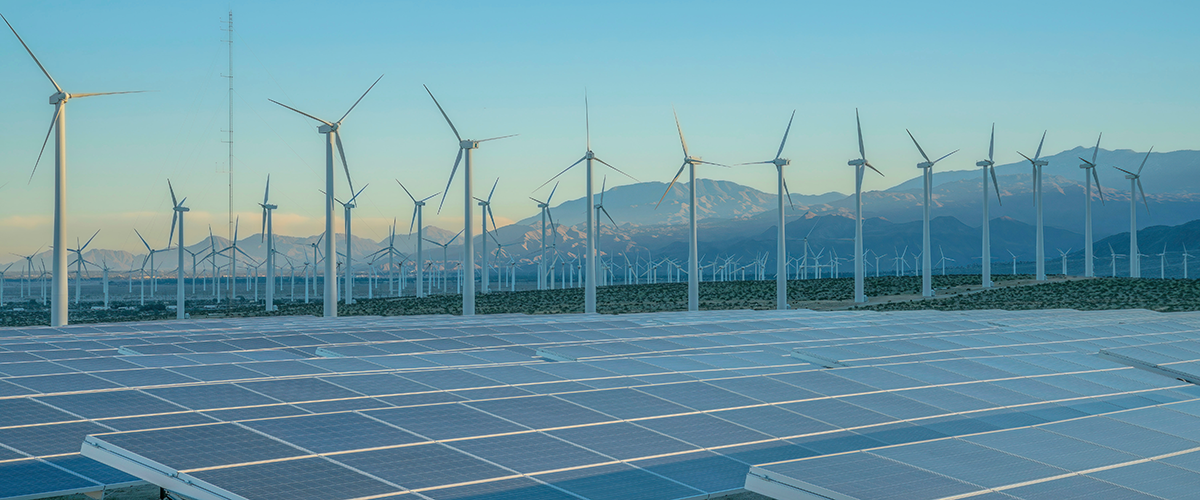Nigeria has an abundance of natural resources, both renewable and nonrenewable. Crude oil and natural gas dominate, making up over 90% of export earnings.
Oil reserves are 37 billion barrels, and gas reserves are 202 trillion cubic feet. The country is also rich in coal, iron ore, limestone, tin, columbite, and gold. Bitumen reserves are estimated at 42 billion tonnes, almost double the crude oil reserves.
Yet, the mining sector contributes less than 1% to the GDP, mostly because of underdevelopment and heavy reliance on oil. Solid minerals like gypsum, barite, and kaolin remain largely untapped.
Nigeria also has vast renewable energy potential. Solar power is underutilized, while hydropower plays a big part. Major dams like Kainji and Shiroro provide about 20% of the country’s electricity. Agriculture thrives on fertile land. Meanwhile, coal and natural gas drive thermal power generation.
READ ALSO: Ghana’s Natural Resources: Locations, Discoveries, Export Potential, And Economic Impact
Locations Of Natural Resources In Nigeria
Nigeria is rich in both renewable and non-renewable resources. Oil and gas dominate the Niger Delta, while solid minerals are scattered across different states.
Let’s take a closer look.
| State | Natural Resources Found |
|---|---|
| Abia | Gold, Lead/Zinc, Limestone, Oil/Gas, Salt |
| Akwa Ibom | Clay, Lead/Zinc, Lignite, Oil/Gas |
| Enugu | Coal, Lead/Zinc, Limestone |
| Plateau | Tin, Columbite, Barite, Kaolin |
| Zamfara | Gold |
| Ondo | Bitumen, Limestone, Kaolin |
| Niger | Talc, Iron Ore, Gold |
| Osun | Talc, Gold, Columbite |
| Kogi | Iron Ore, Talc, Coal |
| Kaduna | Gold, Iron Ore, Talc |
Recent Discoveries And Developments In Nigeria’s Natural Resources
Nigeria has been exploring and developing its rich natural resources. Discoveries and projects are reshaping the economy.
The country remains a global energy powerhouse with over 37 billion barrels of proven oil reserves and 202 trillion cubic feet of natural gas.
1. Oil And Gas Discoveries
Recent deepwater discoveries have expanded Nigeria’s oil production potential. The Egina field, which began production in 2019, is one of the largest deepwater projects in the country.
It produces 200,000 barrels per day and is expected to boost oil output significantly. Offshore fields like this drive economic growth and increase foreign exchange earnings. Liquefied natural gas (LNG) projects are also positioning Nigeria as a major global player.
Nigeria LNG Limited produces 22 million tons of LNG annually, ranking among the world’s largest producers. These investments strengthen revenue streams while supporting domestic energy demands.
2. Solid Minerals
Nigeria is aligning with global trends in battery technology through discoveries of lithium, cobalt, and nickel. These minerals are essential for electric vehicles and renewable energy storage. With the right investment, Nigeria could become a key supplier in the international market.
The country’s gold reserves are estimated at 200 million ounces. And, the Presidential Artisanal Gold Mining Initiative (PAGMI) is working to formalize small-scale mining. This program gives artisanal miners legal access to the sector while increasing production.
Bitumen resources also present a massive opportunity. Nigeria holds an estimated 42 billion metric tons of bitumen, which is important for road construction and infrastructure projects. Proper development could make the country a major global supplier while creating thousands of jobs.
3. Renewable Energy Potential
Nigeria’s solar energy potential is enormous. With 6.5 kWh/m²/day of solar irradiance, harnessing this resource could revolutionize rural electrification and reduce fossil fuel dependency.
Large-scale solar projects are already underway. The 75 MW solar power plant in Kano State is one of the biggest in West Africa.
Viability Of Nigeria’s Natural Resources
1. Economic Viability
Nigeria’s natural resources play a big part in the country’s economic growth. Crude oil remains a top revenue source. Oil exports account for a major share of Nigeria’s foreign exchange earnings.
Natural gas is also gaining prominence, with the government pushing for commercialization both locally and internationally.
Nigeria LNG Limited, one of the world’s largest LNG producers, has a capacity of 22 million tons per year. This boosts revenue and also meets domestic energy demands.
Solid minerals offer untapped economic potential. Gold, iron ore, and bitumen deposits can drive industrial growth and infrastructure development.
The Presidential Artisanal Gold Mining Initiative (PAGMI) is working to formalize small-scale gold mining, increasing production and revenue.
With an estimated 200 million ounces of gold reserves, Nigeria presents a strong investment opportunity in the mining sector.
2. Environmental Sustainability
Sustainability is key when developing natural resources. Extraction can cause pollution, deforestation, and habitat destruction. But with the right strategy, these effects can be minimized.
Renewable energy has a path to cleaner growth. Nigeria has vast solar potential, with 6.5 kWh/m²/day of solar irradiance.
Tapping into this resource can help reduce dependence on fossil fuels. The 75 MW solar power plant in Kano State is a strong example of Nigeria’s commitment to clean energy.
Export Potential Of Nigeria’s Resources
Nigeria has long been a major player in global markets, especially in oil and gas. But the country has much more to offer.
From solid minerals to agriculture, these exports can drive economic growth. In 2022, exports significantly contributed to GDP, underscoring their importance.
1. Oil And Gas Exports
Oil remains Nigeria’s top export. As a member of OPEC, the country has been a major oil producer for years. Crude oil exports dominate foreign exchange earnings, keeping the economy afloat. In recent years, oil revenue has made up a large portion of Nigeria’s income.
But natural gas exports are rising too. As we’ve said earlier, Nigeria is positioning itself as a major LNG supplier. The Nigeria LNG Limited produces 22 million tons annually, ranking among the world’s top LNG producers.
2. Solid Minerals Exports
Nigeria’s solid minerals sector is full of untapped potential. Gold, lead/zinc, and bitumen reserves could drive export growth. With 200 million ounces of gold reserves, Nigeria could compete with gold giants like Ghana and South Africa.
Bitumen is another valuable resource. Nigeria holds 42 billion metric tons in reserves, making it a potential global supplier.
3. Agricultural Exports
Agriculture is another major export sector. Nigeria is one of the world’s largest cassava producers. Its cocoa is globally recognized for quality. Investing in agricultural infrastructure and processing could increase exports and create jobs.
Cassava alone offers multiple export opportunities. It can be processed into ethanol, starch, or flour for international markets. The global demand for Nigerian agricultural products is rising.
READ ALSO: Gambia Natural Resources: Locations, Discoveries,Export Potential, And Economic Impact
Economic Impact Of Natural Resources In Nigeria
Crude oil, natural gas, coal, gold, and agricultural products like cassava and cocoa have contributed to Nigerian economic growth for decades.
In 2022, oil revenue made up 29% of total government income, while oil exports remained the dominant source of foreign exchange.
Contributions To GDP And Government Revenue
The oil sector contributed 5.6% to GDP in Q3 2022, a decline from 7.5% in Q3 2021. Oil exports still account for nearly 90% of foreign exchange earnings. However, non-oil sectors like mining and agriculture are growing.
The mining sector, though still underdeveloped, contributed 0.77% to GDP in 2023. Agriculture expanded from 23% of GDP in 2015 to 26% in 2021.
To boost non-oil revenues, the government introduced initiatives like the Strategic Revenue Growth Initiative (SRGI). Before the end of 2025, the SRGI aims to raise total revenues to 15% of GDP.
Employment And Industrial Growth
Natural resources support millions of jobs. The oil and gas industry provides direct employment and sustains thousands more through ancillary services.
Mining, under initiatives like the Presidential Artisanal Gold Mining Initiative (PAGMI), has given artisanal miners legal avenues to operate. Agriculture remains the largest employer.
Renewable energy is also creating new job opportunities. Solar energy projects are expanding rural electrification, bridging energy gaps while generating employment.
That being said, Nigeria’s reliance on oil brings serious economic risks. Overdependence on oil exports has caused Dutch Disease, where currency appreciation weakens manufacturing and other sectors.
Oil theft is a major problem, with the country losing up to 80% of its crude production to vandalism and illegal activities.
Environmental damage from oil spills in the Niger Delta has destroyed ecosystems and displaced communities, which has caused long-term economic harm.
Manufacturing remains underdeveloped, contributing only 9% to GDP as of 2021. This limits Nigeria’s ability to produce goods for local consumption and export.

